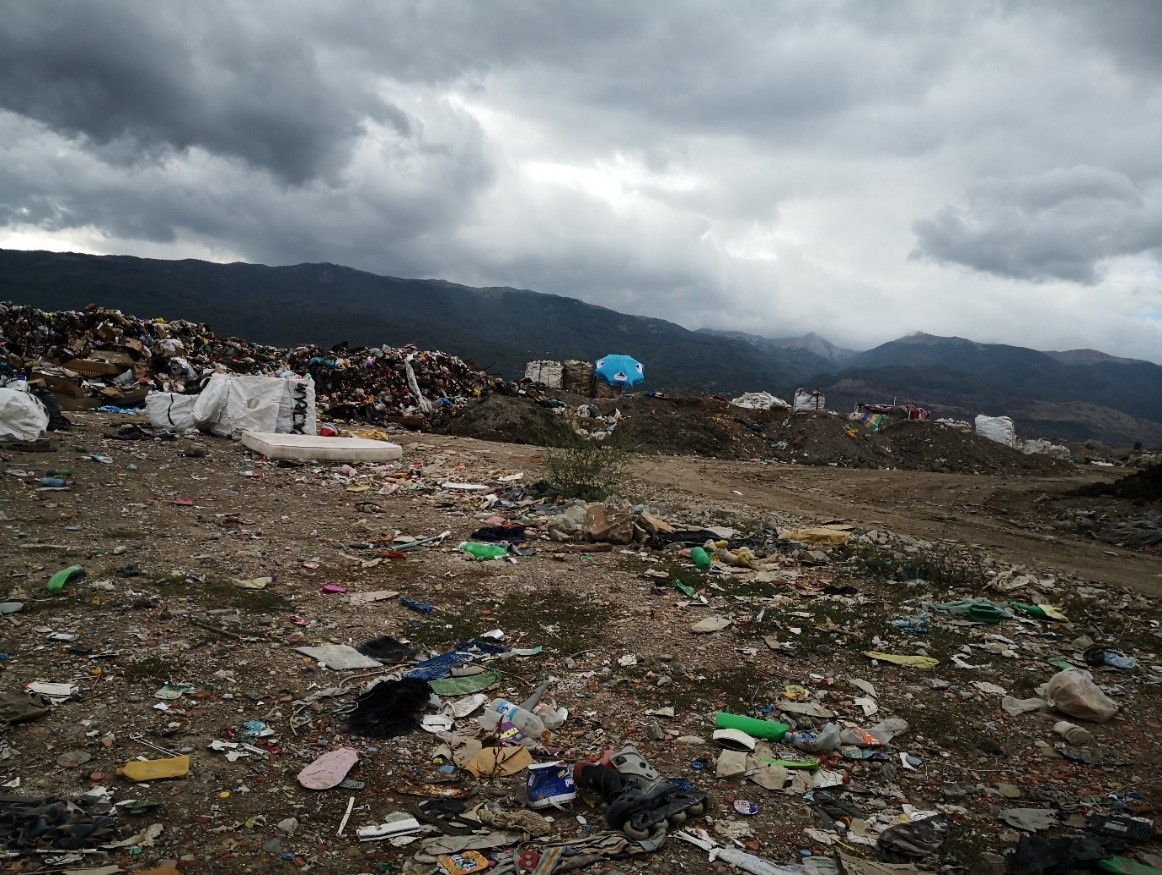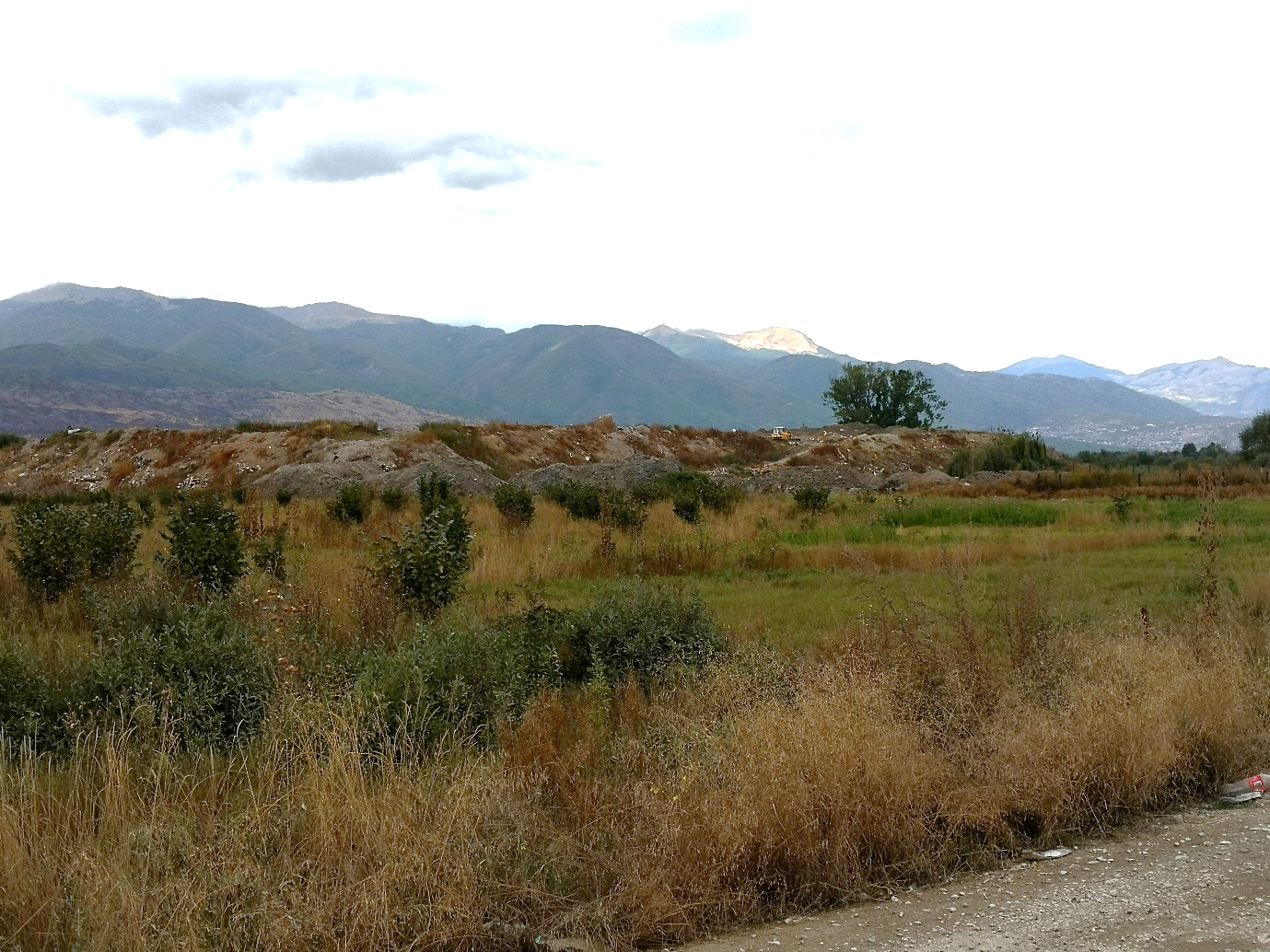
The Macedonian Young Lawyers Association (MYLA) filed a lawsuit against a municipal landfill in Struga for violating citizens’ rights to a healthy environment. Despite the court’s rejection on jurisdictional grounds, this case has sparked a debate on the role of the judiciary in safeguarding environmental rights. In an interview with Bojan Trpevski, a legal expert at MYLA, we explore the principles of precaution and prevention in environmental legislation and the challenges in seeking legal remedies. MYLA advocates for a healthier and sustainable future for North Macedonia.
How did your organisation first become involved in environmental advocacy, and what drives your mission?
Environmental pollution is a long-lasting challenge in the country; however, citizens became more aware of it after the AirCare application showed the concentration of particles in the air in Skopje. After the AirCare application, public pressure was put on institutions to take measures to deal with air pollution. To have such a big air pollution problem, there had to be a systematic problem and
challenges in implementing the legislation, which is generally harmonized with the EU acquis. Starting from this, as an organization highly devoted to the rule of law and human rights protection, we started researching how the law can provide for better environmental protection and protection of the human rights which are affected by the pollution of the environment.
In your opinion, what are the most pressing environmental challenges we are facing?
We face challenges in almost every area of the environment. Waste management is one of the biggest challenges considering the fact that there is only one landfill in the country which has an A-integrated ecological permit and around 1-2 other landfills that have B-integrated ecological permits, while every other municipal landfill for communal waste doesn’t meet the legal standards and criteria and are considered as illegal. The air pollution is a notable challenge, especially during the winter months. Challenges are present in the area of water management and protection, having in mind that there aren’t any River Basin Management Plans adopted, and the wastewater collection and treatment infrastructure isn’t established according to the desired pace. These are some of the challenges that the European Commission finds almost every year in its Progress reports.

Can you briefly explain the main reasons behind the lawsuit filed by the Macedonian Association of Young Lawyers against the Struga Municipality and related entities?
As mentioned before, the rule of law, legislation implementation and human rights protection are the driving forces of the Macedonian Young Lawyers Association. The Struga landfill is located in the protected region of the Ohrid Lake, and UNESCO finds it a challenge to adequate protection of the lake. Its status of not being in compliance with the legal standards for landfills established by Macedonian legislation leads to situations where the waste located on the landfill often burns, polluting the air and the surrounding. What is maybe even more important is that there is a real possibility that the waste collected on the landfill pollutes Ohrid Lake through the groundwater. These findings are part of the expert opinion submitted as a supporting document to the lawsuit that MYLA submitted to the
court. Having in mind all these aspects, we believe that the functioning of the landfill in Struga and the failure to take adequate measures for the state to deal with this situation affects not only the environment but the human rights of the people living near it, above all the right to respect for private and family life protected with Article 8 of the ECHR and the right to healthy environment protected with Article 43 of the Constitution.
Can you shed some light on the current state of the landfill in Struga?
Although the Ministry has already taken steps to establish regional waste management, which should solve the problem of the existence of illegal landfills, they will continue to be an environmental problem until this regional system is established and functional. Having this in mind, the situation with the Struga landfill is nearly the same as when the lawsuit was filed.
What are the next steps for the Macedonian Association of Young Lawyers in light of the court’s decision?
The Macedonian Young Lawyers Association uses the tool of strategic litigation as a means for broader social change. We see our environmental lawsuits as part of this strategic litigation strategy of the organisation. Our goal is that the courts take a proactive role in protecting human rights and the environment and determine that by not taking effective and systematic actions, the country is liable for
violating human rights established by the Constitution or other international agreements. Having this in mind, as established with the ECHR, if the national courts fail to provide adequate protection of human rights which we strongly believe had been violated
because of environmental pollution if the conditions for it are met, we may apply to the European Court of Human Rights.
Are there any other instances or cases where the right to a healthy environment has been challenged in North Macedonia, and how were they addressed?
MYLA initiated 3 cases before the civil courts where we invoked the right to a healthy environment established as such in the Constitution, while another organization has also initiated a case relating to the right to a healthy environment before the administrative court. Out of these 4 cases in total, one case is already filed to the ECtHR, while the other 3 are still in procedure before the national courts. A common challenge for each of the cases so far is that the courts feel they have no jurisdiction to decide on the merits of the cases.
How do you see the role of the court in protecting human rights, especially in the context of environmental conditions?
The courts have an active part in enforcing the legislation. Their role could be accomplished only if, upon a lawsuit or an indictment, they provide supervision over the actions of private and public officials and bodies and whether their behaviour is in compliance with domestic
and international legislation. This is also applicable in the field of environment. We know that the country faces limited finances and
human resources; however, it is the court’s role to determine whether, by not taking adequate measures in the field of the environment, a violation of human rights occurred and what steps should be implemented in the future in order to prevent further breaches of human
rights standards.

In your opinion, what needs to change in the legal system to ensure that environmental issues and human rights are adequately addressed and protected?
We feel that providing actio popularis lawsuits for environmental issues will ease access to the courts for CSOs. We believe that the interpretation of national legal provisions in light of international environmental standards and international human rights standards, such as the ones established by the ECtHR, will only improve the legal protection of the environment.
How do you envision the future of environmental protection and human rights in North Macedonia, especially with the current legal challenges?
The new Law on Civil Proceeding, which allows active popularis lawsuits, has been drafted, and we hope that the Parliament will adopt it in the near future. We feel this would be the first step towards improving the legal protection of the environment and human rights. In general, we feel that the legal protection of the environment will improve. Environmental issues are growing more and more important while the process of taking environmental challenges to the courts has started. This means that legal professionals will have to get more familiar with international environmental legal standards and their development, thus improving the legal protection of the environment in North Macedonia.
Lastly, what message would you like to convey to the public and other stakeholders about the importance of protecting the environment and human rights?
Every one of us has a role in environmental protection. Every citizen can contribute to a better environment through aligning their habits and behaviour with the legislation, while the state has the most important role in creating a system for proper implementation of the legislation and acting whenever there is non-compliance with the law or whenever other environmental issues that affect human rights occur.
The Macedonian Young Lawyers Association (MYLA) is an independent, non-profit professional organization founded in 2003, providing legal assistance and strategic advocacy for protecting human rights. With the knowledge and innovative capacities of young lawyers, MYLA aims to promote and advance the principle of the rule of law and influence public policies through the preparation of research and analysis. MYLA strives for a society in which the rule of law is established and people proactively advocate for the respect of their fundamental freedoms and rights.
